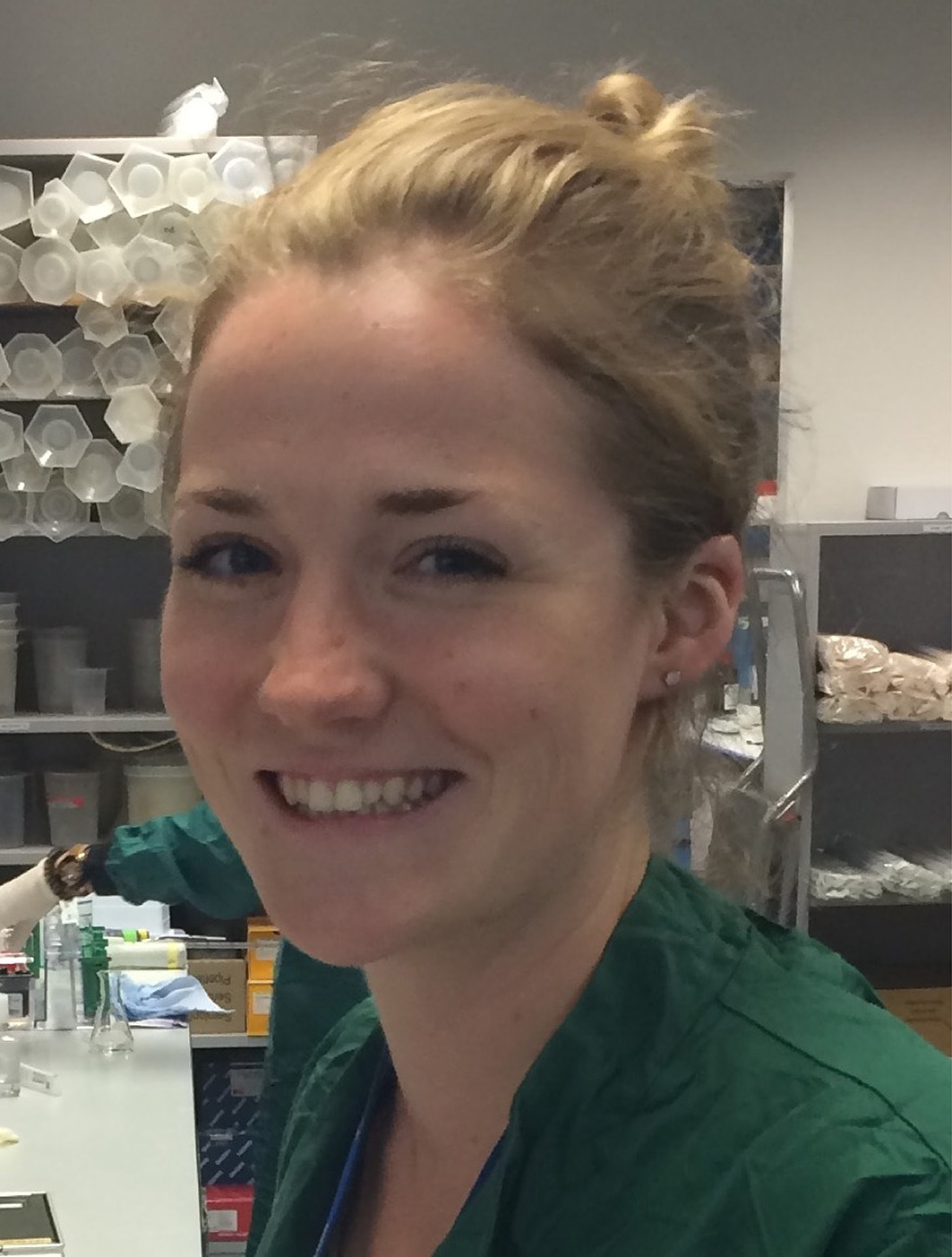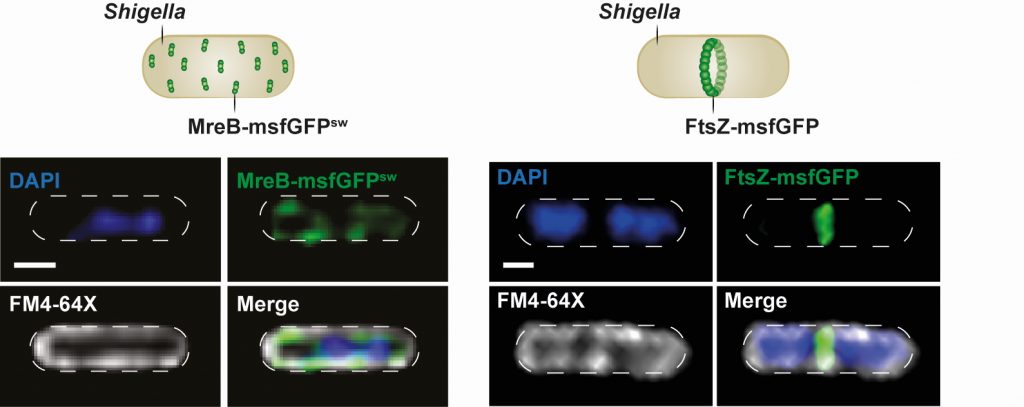6 April 2021
With much of the world still ground to a halt, we’ve missed sharing stories from our Travelling Fellowship recipients. These grants provide early-career researchers with the means to visit international labs and while travel remains restricted, we decided to use this time to catch up with some of our previous recipients.

Sina Krokowski is a postdoc in Andres Floto’s lab here in Cambridge, where she investigates the cell biology underlying host–pathogen interactions. She’s just been awarded a Sir Henry Wellcome Postdoctoral Fellowship, which she hopes will equip her with the skills and independence to start her own research group. Back in 2015, Sina was a PhD student with Serge Mostowy at Imperial College London. Using a JCS Travelling Fellowship, she travelled to the Carballido-López lab at the Institut National de la Recherché Agronomique (INRA) in Paris, France to learn a new technique vital for her PhD.
Sina’s PhD project was to investigate the cytoskeleton of pathogenic bacteria during host cell infection. The project relied heavily on fluorescently labelling and following the bacterial cytoskeleton – a technique that wasn’t in use in the Mostowy lab. “We decided to apply for a Travelling Fellowship to allow me to develop innovative tools in an experienced and progressive environment,” explains Sina. Rut Carballido-López is an expert in microbial genetics and highly credited for her pioneering work on visualising Bacillus subtilis MreB. “Rut’s lab offered the expertise and methodologies I needed to construct tools to study the bacterial cytoskeleton during infection,” she says. “The support I’ve had from the Carballido-López lab in the years since has been invaluable.”
“Even now, the skills I acquired during those two months continue to help me develop new tools and address novel research questions.”
During the trip, Sina learned how to construct new bacterial strains that she could then use to address open questions in bacterial infection biology. “For example, I fluorescently labelled the bacterial division protein FtsZ in the human pathogen Shigella and used microscopy to discover that the host septin cytoskeleton recognises actively dividing bacteria and inhibits their division,” she explains. Sina’s work has helped to better understand how septins recognise Shigella for host defence and how Shigella positions virulence proteins for bacterial spread, and she went on to publish this work in Cell Host and Microbe (CHM) and in JCS. “Even now, the skills I acquired during those two months continue to help me develop new tools and address novel research questions,” Sina tells us.
“[…] my greatest scientific achievement from the trip was to learn a variety of new approaches.”
For the grant recipients, the trip is an opportunity to learn a new technique from the lab that developed it, and then bring it back to their home lab. For Sina, her knowledge resulted in productive discussions both within the lab and beyond. As part of the application process, Sina wrote a research proposal for the trip. While she didn’t manage to achieve everything she had originally planned, Sina still took a lot away with her. “I did feel a bit disappointed, but when I applied my new skills back in London I realised that my greatest scientific achievement from the trip was to learn a variety of new approaches,” she reflects.

Sina used the knowledge she gained from the Carballido-López lab for the duration of her PhD, which she finished in 2019. She then moved to Andres Floto’s lab for her postdoc as part of a change in scientific direction that would use her existing experience. “The Floto lab offers the ideal environment to combine my passion for microscopy with cutting-edge genetic approaches,” Sina says. “I was surprised by how interdisciplinary the Floto group is, with clinicians, dieticians, biochemists, bioinformaticians and biologists. It definitely makes the lab meetings more challenging – and fun!”
“The Travelling Fellowship was such a fun and important experience for me, I would really recommend it to any early-career researcher.”
International collaboration is important to Sina, evident in her postdoc collaborations with labs in Switzerland and the USA. “The exchanging of knowledge is a big part of why I enjoy science so much,” she says. “Doing this on an international level allows access to very specific expertise, which not only accelerates projects but also helps provide new insights into your own research.” With the pandemic restricting opportunities for many early-career researchers, Sina shared her thoughts on how we can help young scientists. As well as emphasising the importance of virtual conferences, she also suggests putting in the groundwork now for when travel is allowed. “Contacting potential collaborators now via email, having virtual meetings and planning for future lab exchanges is a productive way for preparing for the time when travel is allowed,” she says. “The Travelling Fellowship was such a fun and important experience for me, I would really recommend it to any early-career researcher.”








You must be logged in to post a comment.